Labour and Employment Lawyers
If your rights have been violated and you require legal representation,
we are here to help you throughout the process and find a solution.
How Can We Help?
Key Services
Severance Services
Bow River Law has a skilled and experienced team that is ready to determine how much severance a dismissed employee is entitled to in Calgary and throughout Alberta.
Wrongful Dismissal
If an employer has terminated any employee’s position without just cause or reasonable notice, the employee is usually entitled to severance. If the employee works in aviation, banking or telecommunications, they may also be entitled to reinstatement to their job.
Constructive Dismissal
Even if an employee’s employment has not been officially “terminated” by the employer, if the employer has slashed compensation, changed some aspect of the employment such as job duties, or allowed a toxic work environment, the employee may be entitled to resign and call it a “constructive dismissal.”
Discrimination
Discrimination can happen when an employee is treated in a negative way because of their race, skin color, religious beliefs, gender, gender identity or expression, disability, age, ancestry, place of origin, marital status, income, family status, or sexual orientation. Canada and Alberta have Human Rights laws in place to protect employees from being discriminated against.
Harassment & Bullying
Bullying, rude comments, belittling treatment, and unwanted sexual advances all count as harassment in the workplace. All Alberta employers are required to prevent these deeds occurring in the workplace and to stop it when it does happen. Do not put up with this: contact us today to learn about your options.
Workplace Investigations
Alberta employers will often initiate workplace investigations where there has been an incident, some alleged employee misconduct, or a harassment complaint. If you are an employee under investigation or want your employer to investigate harassment, contact us today and we can help you understand your rights and obligations.

Client Reviews
Read more about our clients’ first hand experiences.

Latest Employment Law Videos




Dismissal / Termination
Were you fired, or think you might soon get fired?
Employers often make low-ball severance offers and hope the employee will just sign the paperwork, and it often works because employees are not aware of their legal rights. If you have been given a severance offer, or you believe your employment will be terminated soon, Bow River Law can help you pursue what the law says you deserve.
In other cases, employers may exaggerate misconduct allegations and claim they have just cause in order to try to pay employees nothing or way less than they are entitled to. Just cause is difficult for an employer to establish, and when many employers claim they have just cause, they are often just counting on the employee not knowing their legal rights or the law.
Whatever your situation, the lawyers at Bow River Law will review your severance package and the circumstances around your termination, and give you advice and guidance on your rights and next steps. Our experienced lawyers have been able to get increased severance offers from employers in Calgary, Edmonton, Fort McMurray, Red Deer, Lethbridge and throughout Alberta in many cases. We are strong, effective advocates both outside and inside the courtroom. Let us help you.
Discrimination
Are you being treated poorly at work? Do you think it is because of something you have no control over, such as your race, religious beliefs, colour, gender, gender identity, gender expression, physical disability, mental disability, age, ancestry, place of origin, marital status, source of income, family status or sexual orientation?
Human rights laws in Canada are designed to protect employees from discrimination in the workplace, but discrimination still happens. The Alberta Human Rights Commission can provide general assistance and guidance to individuals who wish to file complaints, but they cannot provide you with legal advice or legal representation.
Our lawyers have experience in discrimination and human rights matters in the workplace, and we have developed effective strategies for resolving matters with employers. In some cases where a resolution with the employer is not possible, our Calgary human rights lawyers can provide you with legal advice and guidance throughout the complaint process and be a strong advocate for you.
Human rights matters are deeply personal. Our lawyers want to hear your story and fight for you. Let us help you.
Harassment
Are you experiencing harassment or bullying at work?
If you are facing bullying, harassment, sexual harassment, or other mistreatment at work that is impacting your life and affecting your health, Bow River Law is compassionate and has the experience and insight needed to properly handle these situations. Our Calgary lawyers have assisted many Alberta employees in resolving toxic work environments. In cases where leaving is the only option, our lawyers have often been effective in getting employees fair severance packages.
Harassment and bullying in the workplace can be a distressing and isolating experience, but you are not alone. Let us help you.
Workplace Investigations
Are you being investigated for something at work? Have you asked your employer to investigate harassment?
If you are an Alberta employee being investigated for something at work, you will probably be put on a paid suspension while they investigate. The workplace investigation will often involve checking the information you provided them against what other people they interview have to say about it.
If you have made a harassment or other workplace complaint, typically your employer will investigate before making a conclusion.
If you are being investigated for something at work or are considering making a workplace complaint in Alberta, let our Calgary employment lawyers help you.

Meet The Team



Chris Jones
Employment Lawyer & Partner
Legal Assistant: Baraa
Baraa’s Phone: 587.391.0809


Amanda Jacinto
Employment Lawyer
Legal Assistant: Aisha
Aisha’s Phone: 587.391.7605

Daniel Jonasson
Employment Lawyer
Legal Assistant: Keelie
Keelie’s Phone: 587.391.7602

Alexis Sine
Employment Lawyer
Legal Assistant: Baraa
Baraa’s Phone: 587.391.0809

Isabella Hernandez
Employment Lawyer
Legal Assistant: Aisha
Aisha’s Phone: 587.391.7605

Shane Varjassy
Employment Lawyer
Legal Assistant: Aisha
Aisha’s Phone: 587.391.7605

Book an Appointment Today
Quick Contact
Fields marked with an * are required

You Asked, We Answered: FAQ's
Pre-Consultation
I did something wrong at work. Will you still help me?
We will still help you if you did something wrong. We are not here to judge you; we are here to help you. Give us a call.
General FAQ
What can I do if my Union will not help me?
If a union refuses to help an employee with an issue, or provides inadequate help, it might be a failure of the union’s “duty of fair representation” to the employee. An employment and labour lawyer can help you make a Labour Relations Board complaint or find another solution to this sort of problem.
What are my restrictions if I leave my employer and start competing?
Every employee has obligations to protect certain interests of their former employer, but certain management or client-facing employees, called “fiduciaries” have more substantial obligations. Usually these obligations include not soliciting former clients for a reasonable period of time after leaving, but usually you can compete. You could be personally liable if you are not careful with this, so you should speak to an employment lawyer first.
My boss is trying to get me to quit. What should I do?
Employers sometimes try to get their employees to quit, because they want to get rid of that employee but they do not want to pay severance. However, depending on what is happening, it might be “constructive dismissal”, and you might still be entitled to severance if you quit. Speak to an employment lawyer for help.
I left my employer. Can I compete with them now?
In many cases, you can compete with your former employer after you leave. This depends partly on whether you have signed a non-competition agreement or non-solicitation agreement, and partly on the position you had with your former employer. Certain high-up positions or client-facing positions have some obligations after leaving an employer, even if they have not signed a non-compete or non-solicit. Even if you signed a non-compete or non-solicit, it might not be enforceable. A skilled and experienced employment lawyer can help you understand your rights on this.
My Former Employer sued me. What should I do?
If you have been sued, you need to speak to an employment lawyer immediately. You have a very short time to defend against any lawsuit, even you do not agree with anything stated in it. The good news is, often employers will have a tough time holding an employee liable in damages if the employee gets legal advice right away.
Someone made a complaint to my professional college about me. What should I do?
If you have a complaint of professional misconduct against you, chances are your employment is in jeopardy and your professional college is investigating as well. You should speak to an employment lawyer right away to help you through this.
How can I tell if I am an employee or a contractor?
Generally, if you work for only one company full-time, there is a strong chance that you are legally considered an employee, even if your written contract says you are a contractor.
I just received a threatening letter from my former employer which says I need to “cease and desist” contacting clients and working for a competitor or they will sue me. What should I do?
If you have received a cease and desist letter from your former employer about clients or working for a competitor, you need to get an employment lawyer immediately to talk about your rights and obligations and protect yourself from potential liability.
What can I do if my professional college wants to investigate me for professional misconduct?
Your professional college is usually allowed to investigate you for professional misconduct, and you are generally required to cooperate with the investigation. However, if you are under investigation you should get a lawyer as soon as possible to advise you and help you protect your rights and interests.
Termination & Dismissal
I have a physical disability, and there is a part of my job I can’t do. Can my employer fire me?
An employer is required to accommodate a disability. Even if there is a part of your job you can’t do, your employer is probably not allowed to fire you for that. You should speak to an employment lawyer right away to help you handle this.
How much severance is a dismissed employee entitled to?
Severance is not the same for everyone, and it is determined on a case-by-case basis. The most common factors considered are age, years of service, and character of employment, but there are many other factors in different situations. It is worth speaking to an employment lawyer with skill and experience to identify the factors which help make the strongest severance argument in your case.
Can my employer just terminate my employment without a good reason?
Usually non-unionized employees can be terminated without a reason, as long as the employer provides you notice or severance. However, sometimes the circumstances of how you were terminated is not allowed, and in the case of federally-regulated employees like pilots, telecommunications workers or bank employees, just cause is often required. Speak to an employment lawyer to understand if your termination was illegal and/or if you got enough severance.
Do I have to look for work after having my employment terminated?
If an employee is terminated but has not accepted a severance offer, they do usually have an obligation to try to “mitigate” by looking for other work. Potential job sites include Indeed, Workopolis, and Government of Alberta Job Board.
Workplace Rights & Protections
My boss just demoted me. What should I do?
A demotion is often considered “constructive dismissal”, which is where an employee is allowed to resign and sue for severance as if he or she were dismissed. If your boss had demoted you, you should speak to an employment lawyer right away about your options.
If my boss fires me just before I was supposed to get a bonus, do they still have to pay it to me?
In many cases an employer is still required to pay out the bonus after terminating your employment. You should speak to an employment lawyer to assess your specific situation and provide you advice.
Can my employer lay me off without pay?
Although the Employment Standards Code appears to allow this, some cases have found that an employer is not allowed to lay off an employee without pay, and that it counts as “constructive dismissal”, where the employee can quit and sue as if he or she were dismissed. Employers have strategies to improve the chances that a layoff will be allowed, so it is important that you get legal advice as soon as possible if you are given notice of a layoff.
I did something wrong at work, and my employer says it has just cause. Is there anything I can do?
If your employer says it has just cause, usually there is still something you can do. Most misconduct is not just cause for dismissal, and even if the misconduct is fairly bad you have options and often will be able to get severance.
Can my boss fire me if I have to be home with my kids?
An employer is required to accommodate your need to secure childcare for your child. This is a complicated issue and not all cases are the same. If this is happening at your workplace, speak to an employment lawyer right away for help.
Can I fire a Pregnant Employee?
An employer is generally allowed to terminate the employment of a pregnant employee, as long as the pregnancy is not a factor in the dismissal. If pregnancy is a factor, the termination is a discriminatory human rights violation in Alberta.
Should I file a harassment complaint at work?
Filing a workplace harassment complaint, or any complaint with human resources, can be dangerous and can backfire. Regardless of what the workplace policy says, speak to an employment lawyer before filing a harassment complaint at work.
Do I have to sign a written warning?
You should not sign a written warning if your employer is trying to get you to admit to something that did not happen. Sometimes written warnings just ask for an acknowledgment by the employee that they were warned, and if that’s true then you may be obligated to sign the warning. It is a good idea to always get legal advice before signing anything.
Contracts & Agreements
Can I still sue my employer if I signed a release already?
Signing a release makes it much harder to successfully sue your employer, but it is possible in some cases such as where the severance is below the minimum amount allowed or the employer forces the employee to sign. Speak to an employment lawyer to understand if you can still sue in your specific case.
What should I do if my employer wants me to sign an employment contract?
You should get legal advice before signing anything, especially an employment contract. Employment contracts can have a major impact on your rights, and the impact is not always obvious when you read through them.
Can I use my invention if I got dismissed?
If you invented something and your employment was terminated, you may or may not be able to use it now. Sometimes employers have rights to inventions made during your employment, especially where the invention relates to your former job with the employer. Get legal help before deciding whether to use an invention.
What sort of employment policies does my company need?
Typical policies include an employee handbook that deals with things like values, compensation, vacation, harassment, drugs and alcohol, conflict of interest, confidentiality, discipline, etc. Every company has different needs, and an employment lawyer can help you sort this out.
Employer & Employee Issues
My employer is saying that I will only receive my statutory termination pay if I don’t sign their release by a certain date. Is that true?
Your statutory termination pay is often only a fraction of the compensation you are entitled to under the law. It is important to review your severance package with an employment lawyer before you sign off on it because often times, the more an employer is pressuring you to sign off on it, the worse the offer actually is. Have a consultation with an employment lawyer to learn about your legal entitlements on termination, and whether the package offered to you measures up.
What should I do if human resources says there is a workplace complaint against me?
If you have a workplace complaint against you, you are required to cooperate with the investigation, but you still have rights. Speak with an employment lawyer to guide you through the process.
What can I do if my employer violated my privacy?
If an employer violates your privacy, you may have a variety of legal claims against them, but there is also some public information available at the website for the Alberta Information and Privacy Commissioner.
Who can I talk to if my boss wants me to do something unsafe at work?
If your boss is asking you to do something unsafe at work, you may have a variety of legal claims against them, but there is also some public information available at the website for Alberta Occupational Health and Safety.
Is my employer allowed to take away some of my sales territory?
Employers are allowed to manage their workforce, but they do not have unlimited rights to take things like sales territories away. If this is happening, you may have a legal complaint for unpaid wages or constructive dismissal.



























